Chevening Scholarship Requirements: Your No-Nonsense Guide to Getting In
So You Want to Be a Chevening Scholar?
Let me guess. You’ve heard about the Chevening scholarship—that golden ticket to a fully-funded UK master’s degree—and you’re wondering if you’ve got what it takes. Maybe you’re scrolling through their website at 2 AM, squinting at eligibility criteria and wondering if your two years of work experience “count” or if your undergraduate degree from a university nobody’s heard of will cut it.
Here’s the truth: The Chevening scholarship requirements aren’t designed to exclude you. They’re designed to find future leaders who’ll actually use this opportunity to create change. But—and this is important—they’re also quite specific. Miss one requirement, and your application won’t even make it past the first filter.
So let’s cut through the official jargon and break down exactly what you need to qualify for this life-changing scholarship. No fluff. No maybes. Just the real requirements, explained like a friend who’s been through it all.

The Big Picture: What Chevening Actually Wants
Before we dive into the nitty-gritty Chevening eligibility criteria, let’s understand the philosophy behind these requirements.
Chevening isn’t looking for perfect students with flawless GPAs who’ll disappear into academia forever. They’re hunting for people who’ll take their UK education back home and shake things up—in government, in business, in communities, in policy. They want troublemakers in the best sense. Changemakers. People who see what’s broken and have the audacity to believe they can fix it.
Every requirement you’re about to read serves that mission. The work experience requirement? Because they want people who understand real-world problems. The return requirement? Because this scholarship is an investment in your home country, not a backdoor to UK immigration. The citizenship rules? Because Chevening focuses on specific countries where UK connections can create maximum impact.
Understanding this helps. When you’re filling out your application, you’re not just ticking boxes—you’re proving you’re the kind of person Chevening was created for.
The Non-Negotiables: Core Chevening Scholarship Requirements
Let’s start with the absolute must-haves. These are the Chevening scholarship eligibility requirements that, if you don’t meet them, mean you simply cannot apply. No exceptions, no sob stories, no “but I’m close enough.”
1. Citizenship: Are You From an Eligible Country?
This is the first gate. The Chevening country eligibility list includes over 160 countries and territories, but not everyone qualifies.
You must be:
- A citizen of a Chevening-eligible country or territory
- Applying to return to your country of citizenship for a minimum of two years after your scholarship ends
Important nuances:
If you hold dual citizenship with a Chevening-eligible country, you’re usually fine—but you must choose which citizenship you’re applying under and commit to returning there. You can’t claim eligibility through Country A and then plan to return to ineligible Country B.
The Chevening supported countries list changes occasionally, so always check the official website. As of 2025, most countries in Africa, Asia, Latin America, the Middle East, and some parts of Europe and Oceania are eligible. Notably, EU countries became eligible again post-Brexit, though with some different conditions.
Quick check: Search “Am I eligible for Chevening” plus your country name. If you don’t see your country listed on the official Chevening website, unfortunately, you’re out of luck—at least for now.

2. Academic Qualifications: The Undergraduate Degree Requirement
Here’s where it gets interesting. The Chevening undergraduate degree requirement is straightforward on paper but confusing in practice.
You must have:
- An undergraduate degree that will enable you to gain entry to a postgraduate program at a UK university
- This degree must be equivalent to an upper second-class 2:1 honors degree in the UK
What does that actually mean?
In UK terms, a 2:1 is roughly equivalent to:
- 3.3+ GPA on a 4.0 scale (US system)
- 60-69% average (UK system)
- First class or second-class upper division (Commonwealth countries)
- Generally, B+ average or higher
But here’s the thing—the Chevening required GPA isn’t set in stone globally because grading systems differ wildly. What matters more is whether UK universities will accept your degree for master’s admission. If you can get into a UK master’s program, you generally meet the Chevening academic requirements.
Special cases:
“I have a three-year degree, not four years.”
Many countries offer three-year bachelor’s degrees. Most are accepted, but some UK universities require a conversion or pre-master’s course first. Check with your chosen universities.
“My degree isn’t from a well-known university.”
Chevening doesn’t require a degree from a prestigious institution. What matters is that it’s legitimate and meets UK postgraduate entry standards. Lesser-known regional universities? Totally fine if they’re accredited.
“I have multiple degrees.”
Even better, but you still need at least one undergraduate degree that meets the requirement.
“I’m currently finishing my degree.”
You can apply while completing your final year, but you must graduate before the Chevening start date (usually September). You’ll need to provide proof of completion later.
3. Work Experience: The 2,800 Hours Rule
This is where most people get nervous. The Chevening work experience requirements are specific: you need at least 2,800 hours of work experience (equivalent to two years full-time work) before submitting your application.
What counts:
✓ Full-time employment
✓ Part-time employment (proportionally calculated)
✓ Internships (paid or unpaid)
✓ Volunteer work
✓ Self-employment or running a business
✓ Multiple roles combined
What doesn’t count:
✗ Full-time education (even if you worked part-time alongside)
✗ Mandatory work as part of your degree program
✗ Work done before completing your undergraduate degree (in most cases)
How to calculate your hours:
The math is simple but requires honesty. If you worked full-time (roughly 35-40 hours per week) for two years, you’re covered. But if you had part-time jobs, freelance gigs, and volunteer positions, you’ll need to add them up carefully.
Example calculation:
- Job A: Full-time NGO position (40 hours/week × 52 weeks × 1 year) = 2,080 hours
- Job B: Part-time consultancy (20 hours/week × 52 weeks × 0.5 years) = 520 hours
- Volunteer work: Community project (10 hours/week × 52 weeks × 0.5 years) = 260 hours
- Total: 2,860 hours ✓
The controversial question: Chevening eligibility without work experience
Can you apply without formal employment? Technically, no. The Chevening scholarship employment requirements are firm. However, “employment” is broadly defined. If you’ve been volunteering full-time for two years at an NGO, that counts. If you’ve been running your own small business or freelancing consistently, that counts too.
What doesn’t work is trying to apply fresh out of university with no substantial work experience. Chevening wants people who’ve been in the trenches, who understand how systems work and fail, who’ve led teams or projects or initiatives. You need that grounding.

4. The Return Requirement: Your Two-Year Commitment
This is the Chevening return requirement, and it’s absolutely non-negotiable. You must commit to returning to your country of citizenship for a minimum of two years after your scholarship ends.
Why this matters:
Chevening isn’t a pathway to UK immigration. It’s explicitly designed to develop leaders who’ll create impact in their home countries. The UK government invests in you expecting returns—not in money, but in influence, expertise, and connections that strengthen UK relationships with your country.
What it means practically:
After completing your master’s degree (usually a one-year program), you cannot:
- Apply for UK work visas immediately
- Transition to other UK immigration routes (with very limited exceptions)
- Extend your stay in the UK beyond a short grace period
You must return home and stay there for at least two years before you’re technically “free” to move elsewhere.
Common concerns:
“But what if I get an amazing job offer in the UK?”
You’ll have to decline it or lose your Chevening funding. Some scholars have lost their scholarships by not honoring this commitment.
“Can I visit the UK during my two-year return period?”
Yes, for tourism, conferences, short-term work assignments—but you can’t relocate there.
“What if my country situation becomes unsafe?”
There are humanitarian exceptions, but these are rare and require serious documentation. Chevening evaluates these case-by-case.
The commitment to return Chevening takes seriously. Breaking it can affect future UK visa applications and damage the Chevening reputation in your country, potentially impacting future applicants.
The Details That Trip People Up: Chevening Application Requirements
Now let’s talk about the Chevening scholarship application requirements that aren’t immediately obvious but are equally important.
University Choices and Course Eligibility
You must apply to three different eligible UK universities for three different eligible master’s courses. All must be one-year programs.
Chevening eligible courses include:
- Most one-year taught master’s programs
- Some MRes (Master of Research) programs
- Certain professional master’s degrees
Not eligible:
- Two-year programs
- MBA programs (there’s a separate Chevening MBA fellowship)
- Distance learning or part-time courses
- Undergraduate or PhD programs
- Programs that require you to have a UK work visa
Each university must provide you with an unconditional offer before you finalize your scholarship. This means you’re responsible for the university application process separately—Chevening doesn’t handle that for you.
Pro tip: Choose universities and courses strategically. Don’t just pick the top three ranked universities. Pick programs that genuinely align with your goals and where you have a realistic chance of admission.
Reference Letter Requirements
The Chevening reference letter requirements specify you need two references from people who can speak to your professional abilities, leadership potential, and suitability for the scholarship.
Who makes a good referee:
- Direct supervisors or managers
- Professors who supervised your research or thesis
- Senior colleagues who’ve worked closely with you
- Mentors from leadership programs
- Directors of organizations where you’ve volunteered significantly
Who doesn’t work:
- Family members (obviously)
- Friends, regardless of their professional position
- People who barely know you
- People who can’t write in English
Your references must be submitted online through the Chevening system and should address specific questions about your leadership, networking abilities, and potential.

English Language Proficiency
The Chevening language requirements are actually set by the UK universities you apply to, not by Chevening directly. However, you’ll need to meet English proficiency standards eventually.
Accepted tests:
- IELTS Academic
- TOEFL iBT
- Pearson PTE Academic
- Cambridge English exams
Typical requirements: Most UK universities require overall IELTS 6.5-7.0, with no component below 6.0. Some top universities or specific programs demand higher scores.
Exemptions: You usually don’t need English tests if:
- Your undergraduate degree was taught entirely in English
- You’re from a majority English-speaking country
- You’ve worked in English for several years
Check with each university—requirements vary.
Financial Requirements and Funding
Here’s the beautiful part: Chevening covers almost everything, so the Chevening financial requirements from your end are minimal.
Chevening provides:
- Full university tuition fees
- Monthly living allowance (stipend)
- Return airfare to the UK
- Arrival allowance
- Visa application costs
- Travel grant to attend Chevening events
What you might need:
- Funds to support yourself between acceptance and receiving the first stipend payment
- Money for your university applications (application fees vary but expect £50-100 per university)
- Personal spending beyond the stipend
- Any dependents’ costs (Chevening only covers you, not family)
You won’t need to prove significant personal funds, but having some savings helps with the transition period.
The Chevening Scholarship Eligibility Checklist: Can You Apply?
Let me make this super simple. Here’s your definitive Chevening eligibility checklist. Go through each point honestly.
| Requirement | Your Status | Details |
|---|---|---|
| Citizenship | ☐ Yes ☐ No | I am a citizen of a Chevening-eligible country |
| Undergraduate Degree | ☐ Yes ☐ No | I have (or will have before September) a degree equivalent to UK upper second-class |
| Work Experience | ☐ Yes ☐ No | I have at least 2,800 hours of work experience |
| Return Commitment | ☐ Yes ☐ No | I can commit to returning home for two years after the scholarship |
| University Applications | ☐ Yes ☐ No | I can apply to three different UK universities for eligible master’s programs |
| English Proficiency | ☐ Yes ☐ No | I meet or can meet English language requirements |
| No Conflicts | ☐ Yes ☐ No | I am not currently a UK government employee or have conflicting scholarships |
| Available for Study | ☐ Yes ☐ No | I can relocate to the UK for one year starting September 2026 |
If you checked “Yes” to all of these, congratulations—you meet the basic Chevening scholarship requirements. Now comes the hard part: creating an application compelling enough to stand out from 65,000+ other eligible candidates.

Who Can’t Apply: Chevening Scholarship Restrictions
Let’s be equally clear about the Chevening scholarship ineligible reasons. You cannot apply if:
1. You hold British or dual British citizenship
Sorry, but this scholarship is specifically for non-British citizens.
2. You have previously studied in the UK with UK government funding
If you’ve already benefited from UK government scholarships, you’re not eligible. This includes previous Chevening awards, Commonwealth Scholarships, etc.
3. You’re applying for a second master’s degree
The Chevening second master’s eligibility question comes up often. Generally, if you already have a UK master’s degree (or are currently studying one), you can’t get another through Chevening. However, if your first master’s wasn’t UK-funded and you’re pursuing a significantly different field, there might be rare exceptions—check with Chevening directly.
4. You work for the UK government in any capacity
Current employees or contractors of the British government, British embassies, or British organizations are typically excluded. Former employees usually need to wait a specified period.
5. You have outstanding financial obligations to the UK government
If you’ve previously defaulted on UK-backed loans or scholarships, you’re ineligible until these are resolved.
6. You’re applying for distance learning or part-time programs
Chevening only funds full-time, in-person master’s programs in the UK.
7. You can’t commit to the return requirement
If you’re planning to stay in the UK or move elsewhere immediately after graduation, don’t apply. Chevening will find out, and consequences can be severe.
Special Cases and Exceptions: The Gray Areas
Now for the questions that don’t have straightforward yes/no answers.
“Is there a Chevening age limit?”
No. There’s no maximum or minimum age limit for Chevening applicants. I’ve seen 22-year-olds and 45-year-olds win Chevening. What matters is that you meet the work experience requirement and can demonstrate leadership potential.
That said, most Chevening scholars are in their mid-20s to mid-30s. If you’re older, make sure your application clearly shows why now is the right time for this scholarship and how you’ll still have years of impact ahead.
“I’m a recent graduate. Can I apply?”
The Chevening eligibility after graduation depends entirely on your work experience. If you graduated two years ago and have been working full-time since, yes. If you graduated three months ago, no—you don’t have the required hours yet.
Some candidates try to combine part-time work they did during university with post-graduation work to hit 2,800 hours. This is risky. Chevening explicitly states work done during full-time education typically doesn’t count.
“My degree is in a completely different field from what I want to study.”
Totally fine. Chevening doesn’t require your master’s to be in the same field as your bachelor’s. Career changes are common and often encouraged—they show you’re responding to problems you’ve identified through work experience.
However, UK universities care about this. Make sure you can articulate a logical progression and convince universities to admit you despite the field change.
“I have citizenship in two Chevening-eligible countries. Which should I choose?”
Choose the country where:
- You’re most connected professionally and personally
- You genuinely plan to return after your scholarship
- You can demonstrate the strongest future impact
- Your leadership experience is most relevant
You can only apply under one citizenship, and that’s where you must return.

“Can I defer my Chevening scholarship?”
Generally, no. Deferrals are extremely rare and only granted for serious circumstances (medical emergencies, family crises, etc.). If you’re not ready to start in September of the award year, don’t apply yet.
The Hidden Requirements: What Chevening Doesn’t Explicitly Say
Beyond the official Chevening scholarship criteria, there are unwritten expectations that separate successful applicants from rejected ones.
Leadership That’s Actually Impressive
Yes, the application asks about leadership. But having “led a team of five” at your job isn’t enough when you’re competing against people who’ve started NGOs, influenced national policy, or mobilized entire communities.
The Chevening scholarship successful applicants demonstrate leadership that:
- Created measurable change
- Involved meaningful risk or challenge
- Required influencing people they didn’t have formal authority over
- Shows progression and growth over time
Networking That Goes Beyond LinkedIn Connections
Chevening obsesses over networking because UK relationships are central to the program’s mission. They want people who’ll genuinely build bridges between the UK and their home countries.
Strong candidates show they:
- Already maintain international professional relationships
- Actively participate in professional communities
- Have concrete plans for how UK connections will amplify their impact
- Understand networking as collaboration, not just collecting contacts
A Genuine, Specific Plan
Vague promises about “contributing to development” or “improving education” won’t cut it. The scholarship panel reads thousands of applications. Generic answers blur together instantly.
Winners have:
- Specific organizations they plan to work with
- Concrete problems they’re addressing
- Clear timelines with milestones
- Realistic understanding of their sector’s challenges
- Unique angles based on their actual experience
Understanding the Selection Process: Beyond Requirements
Meeting the Chevening eligibility criteria gets you in the door. Standing out requires understanding how selection actually works.
The stages:
- Application screening: Automated and human review checking you meet basic requirements
- Application assessment: Detailed evaluation of your essays, leadership examples, and overall narrative
- Shortlisting: Top candidates selected for interview
- Interviews: Panel interview assessing your suitability
- Conditional selection: Successful candidates receive conditional offers
- University applications: You must secure admission to eligible programs
- Final selection: Scholarship confirmed once you meet all conditions
Where most people fail:
- Screening stage: Missing basic requirements or application errors
- Assessment stage: Generic essays that don’t demonstrate genuine leadership
- Interview stage: Inability to articulate plans clearly or defend application claims
The Chevening scholarship conditions require you to maintain eligibility throughout. If your circumstances change (you move countries, lose your job, can’t return home), you must inform Chevening immediately.

Country-Specific Nuances: Why Requirements Sometimes Vary
While core requirements are universal, some Chevening citizenship exceptions and variations exist based on your country.
Country Quotas
Some countries have more allocated scholarships than others. Pakistan, India, Indonesia, and Nigeria typically have higher allocations. Smaller countries might have 1-2 awards annually.
This affects your competition level but doesn’t change requirements.
Partner Awards
Some countries have partnerships where organizations co-fund Chevening scholarships with specific focus areas (climate, governance, etc.). These might have additional requirements or preferences.
Regional Variations
Application deadlines can vary slightly by region. Interview processes might differ (some countries conduct virtual interviews, others in-person). Always check country-specific guidance on the Chevening website.
The Timeline: When Requirements Must Be Met
Understanding the Chevening scholarship application eligibility timeline is crucial for planning.
Typical annual cycle:
August: Applications open
- You should already meet citizenship, degree, and work experience requirements
- Begin university research
November: Applications close (around November 7)
- All requirements must be verifiable by this date
- References must be submitted
December-February: Application assessment
- Ensure you remain eligible (don’t change countries, etc.)
February-June: Interviews conducted
- Shortlisted candidates interviewed in their home countries
June: Conditional offers announced
- Selected candidates notified
July-September: University applications due
- You must apply to and receive offers from three UK universities
- Must meet any English language requirements
September: Scholarships confirmed
- Final confirmation once university admission secured
September (following year): Scholars arrive in UK
- Must have completed undergraduate degree by now
- Must be ready to begin master’s program
Key point: You can’t start meeting requirements during the application process. Everything except university admission must be in place when you apply.
Documentation: Proving You Meet Requirements
The Chevening scholarship documents you’ll need to provide include:
During application:
- Passport or national ID (proving citizenship)
- Undergraduate degree certificates and transcripts
- Detailed work history with dates and hours
- Two reference letters (submitted by referees)
After conditional selection:
- University offer letters (from three institutions)
- English language test scores (if required)
- Updated academic documents if you were completing your degree
- Medical clearance (sometimes required)
- Visa-related documents
Evidence requirements tip: Keep detailed records of your work experience from the start. Employment letters, contracts, payslips, and supervisor contacts all help verify your 2,800 hours.
Some candidates have lost scholarships because they couldn’t adequately prove their work experience claims. Don’t let documentation issues torpedo your chances.

Common Myths About Chevening Requirements Debunked
Let’s clear up the Chevening scholarship advice that’s flat-out wrong.
Myth: “You need a 3.5+ GPA to be competitive”
Reality: While strong grades help, Chevening values leadership and impact more. Candidates with 3.2 GPAs but extraordinary professional achievements win over 4.0 students with minimal work experience.
Myth: “You must have international work experience”
Reality: Most Chevening scholars worked entirely in their home countries before applying. International experience is nice but not required.
Myth: “You need to know someone at the British Embassy”
Reality: The selection is merit-based. Connections don’t help (and might actually raise red flags about favoritism).
Myth: “STEM fields are preferred”
Reality: Chevening funds students across all fields—humanities, social sciences, arts, sciences, engineering. What matters is your plan for impact, not your discipline.
Myth: “You can’t apply from certain regions of your country”
Reality: As long as you’re a citizen of an eligible country, your specific region, city, or background within that country doesn’t matter.
Myth: “Getting rejected means you weren’t qualified”
Reality: Most rejected candidates met all requirements. With 65,000+ applicants for ~1,500 scholarships, excellent candidates get rejected due to intense competition, not qualification issues.
Preparing to Meet Requirements: Action Plan
If you’re reading this well before applications open, here’s your strategic action plan for meeting Chevening program requirements:
12+ Months Before Applying
If you’re still studying:
- Focus on finishing your degree strong
- Seek internships or volunteer work to start accumulating hours
- Develop leadership experiences (clubs, initiatives, projects)
- Build relationships with potential referees
If you’re working:
- Take on leadership responsibilities in your role
- Track your work hours meticulously
- Pursue community or volunteer leadership on the side
- Start following UK news and your sector’s UK developments
6-12 Months Before
- Calculate your exact work hours to confirm you’ll meet 2,800 by application deadline
- Identify and approach potential referees
- Research UK universities and master’s programs
- Take English proficiency tests if needed
- Begin drafting your leadership examples and impact stories
3-6 Months Before
- Finalize university choices
- Confirm referee commitments
- Gather all documentation
- Write and refine your application essays
- Join Chevening applicant communities
- Attend any Chevening information sessions
Application Period (August-November)
- Submit application well before deadline (don’t wait until the last day)
- Ensure referees submit on time
- Triple-check all requirements are met
- Keep copies of everything submitted
If You Don’t Meet Requirements Yet: Your Options
Not ready to apply this year? Here’s how to use the time strategically.
If you lack work experience:
Calculate exactly how many hours you need and when you’ll reach 2,800. Work backward to figure out your eligible application cycle. Meanwhile:
- Take any legitimate work opportunity (paid or unpaid) that gives you leadership exposure
- Document everything meticulously
- Focus on impact, not just accumulating hours
If you don’t have your degree yet:
You can apply during your final year, but ensure you’ll definitely graduate before the scholarship start date. Any risk of not completing on time makes you ineligible.
If English proficiency is your barrier:
Start preparing for tests now. Many candidates need multiple attempts to hit required scores. Budget time and money for this.
If your GPA is borderline:
Consider taking additional courses or certifications to demonstrate academic ability. Some candidates pursue graduate certificates or professional certifications that show they can handle master’s-level work.
If you’re from an ineligible country:
Unfortunately, you’ll need to look at alternative scholarships. Check for Commonwealth Scholarships, Fulbright (if in certain countries), or other UK scholarship schemes that might have different eligibility criteria.

Beyond Requirements: What Actually Wins Scholarships
Here’s something crucial: Meeting requirements makes you eligible. It doesn’t make you competitive.
The successful Chevening applicants I’ve known—and I’ve mentored quite a few—all shared qualities beyond checking requirement boxes:
Authenticity: They told real stories about their real experiences, including failures and challenges. No fabrication, no exaggeration.
Specificity: Their plans weren’t vague aspirations but concrete roadmaps with names, dates, organizations, and measurable goals.
Self-awareness: They understood their strengths and gaps. They could articulate why the UK specifically and why their chosen programs specifically would address their development needs.
Genuine passion: Their commitment to their cause came through viscerally. You believed they’d create change with or without Chevening—the scholarship would just amplify what they were already doing.
Strategic thinking: They understood systemic problems, not just surface symptoms. They could connect their personal experiences to broader policy, economic, or social issues.
Meeting the Chevening official requirements is just the entry ticket. Building an application that showcases these qualities is what gets you selected.
Final Check: Are You Really Ready?
Before you start your application, honestly answer these questions:
- Do you meet every single official requirement with clear documentation?
- Can you articulate exactly what you want to study, why, and how you’ll use it?
- Do you have specific leadership examples showing measurable impact?
- Can you explain why the UK specifically (not just “quality education” but actual connections to your goals)?
- Have you researched universities and courses thoroughly enough to make informed choices?
- Do you genuinely plan to return home for at least two years?
- Are your referees people who know your work intimately and can vouch for your leadership?
- Do you have time to craft thoughtful essays that showcase your unique story?
If you answered yes to all of these, you’re in excellent shape. Start your application with confidence.
If you answered no to several, take a hard look at whether you should apply this cycle or wait until you’re genuinely ready. A rushed, underprepared application rarely succeeds. Better to wait a year and apply with a strong, compelling package than to waste your shot with a half-baked attempt.
The Bottom Line: You’ve Got This (If You’re Ready)
Look, the Chevening scholarship requirements might seem daunting when you’re staring at them for the first time. Work experience calculations, citizenship rules, return commitments—it’s a lot.
But here’s what I want you to remember: These requirements aren’t obstacles designed to keep you out. They’re filters to ensure scholars can actually benefit from and contribute to the program.
If you meet them, you belong in that applicant pool. Period.
Now it’s about showing the selection panel not just that you meet requirements, but that you’re exactly the kind of future leader Chevening was created to support. Someone who’ll take this opportunity and turn it into real, lasting change in your corner of the world.
The scholarships exist. The funding is real. And every single year, about 1,500 people who were once in your exact position—wondering if they qualify, if they’re good enough, if they should even try—end up in the UK, fully funded, pursuing their dreams.
Why shouldn’t you be one of them?

Your Next Steps
If you meet all requirements:
- Visit the official Chevening website and create an account
- Download the application guidance document
- Start drafting your essays
- Reach out to potential referees
- Research universities and courses intensively
- Set yourself mini-deadlines for each application component
- Join Chevening applicant communities for support
If you’re close but not quite there yet:
- Calculate exactly when you’ll meet all requirements
- Create a concrete plan to close any gaps
- Start building the experiences that will strengthen your application
- Connect with current or former Chevening scholars
- Follow Chevening on social media for updates and insights
- Mark your calendar for when you’ll be eligible to apply
If you’re far from meeting requirements:
- Be honest about your timeline (maybe it’s 2-3 years out)
- Focus on building genuine leadership experience
- Keep learning about Chevening and UK universities
- Look into other development opportunities in the meantime
- Stay committed to your goals—there are many paths to impact
One More Thing
The Chevening scholarship changed countless lives. People who grew up in villages now advise governments. People who struggled to afford university now lead multinational NGOs. People who never imagined studying abroad now bridge entire continents through their networks.
None of them were perfect candidates. All of them met the requirements, worked incredibly hard on their applications, and dared to believe they deserved the chance.
Requirements? You can meet them.
Competition? You can stand out.
Impact? You can create it.
So stop wondering if you’re eligible and start proving you’re exceptional.
The application portal’s waiting. Your future’s calling.
Go get it.
Ready to start your Chevening journey? Share this guide with fellow applicants, bookmark it for reference, and remember—you’ve got everything you need to succeed. The only question is: are you ready to go for it?
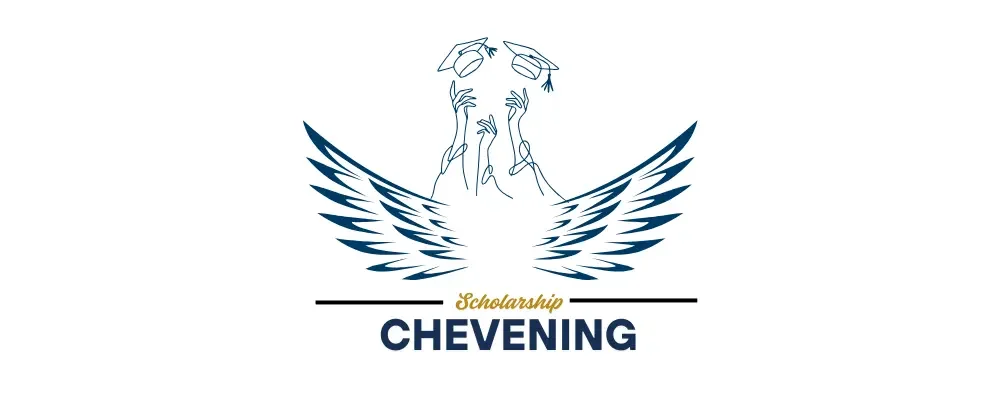

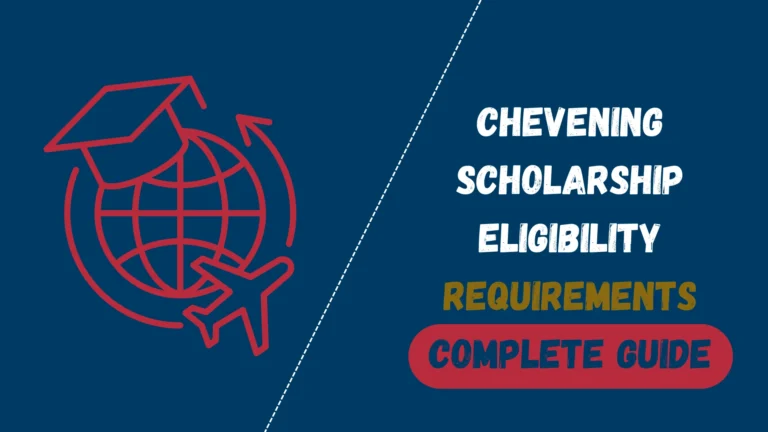
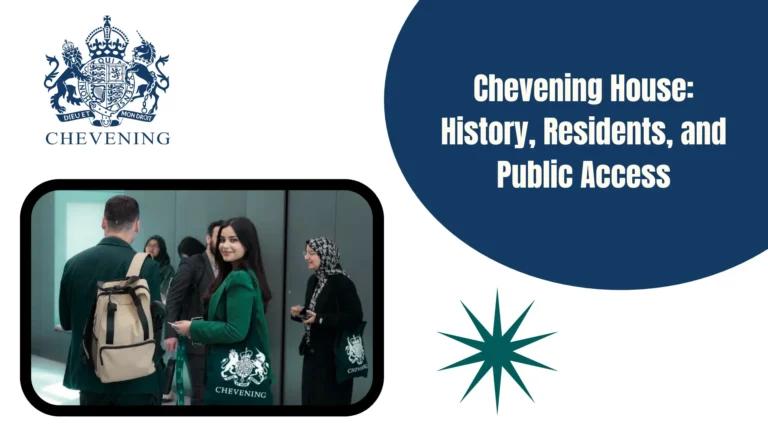
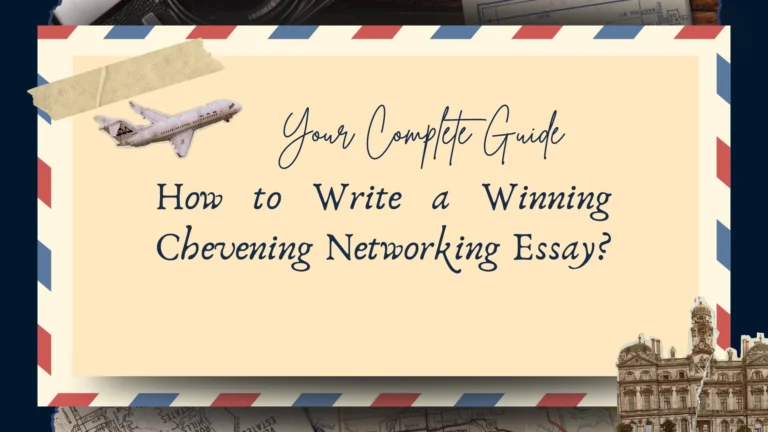


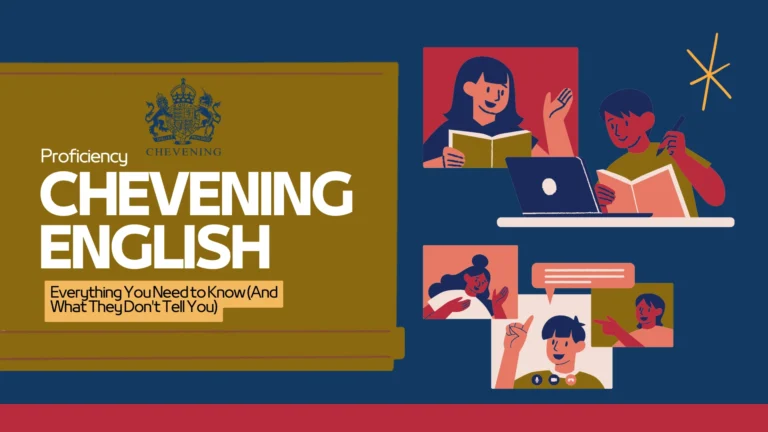
Immerse into the stunning galaxy of EVE Online. Start your journey today. Create alongside thousands of pilots worldwide. Free registration
can you give me backlink